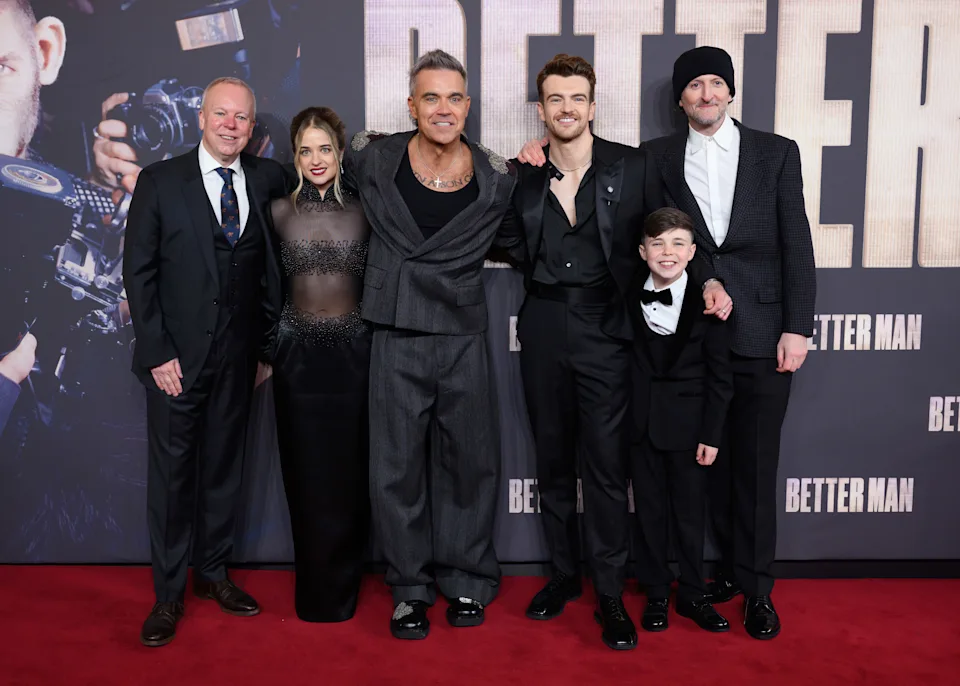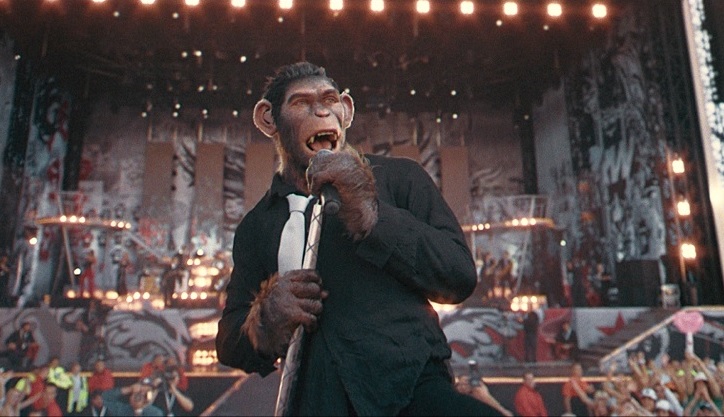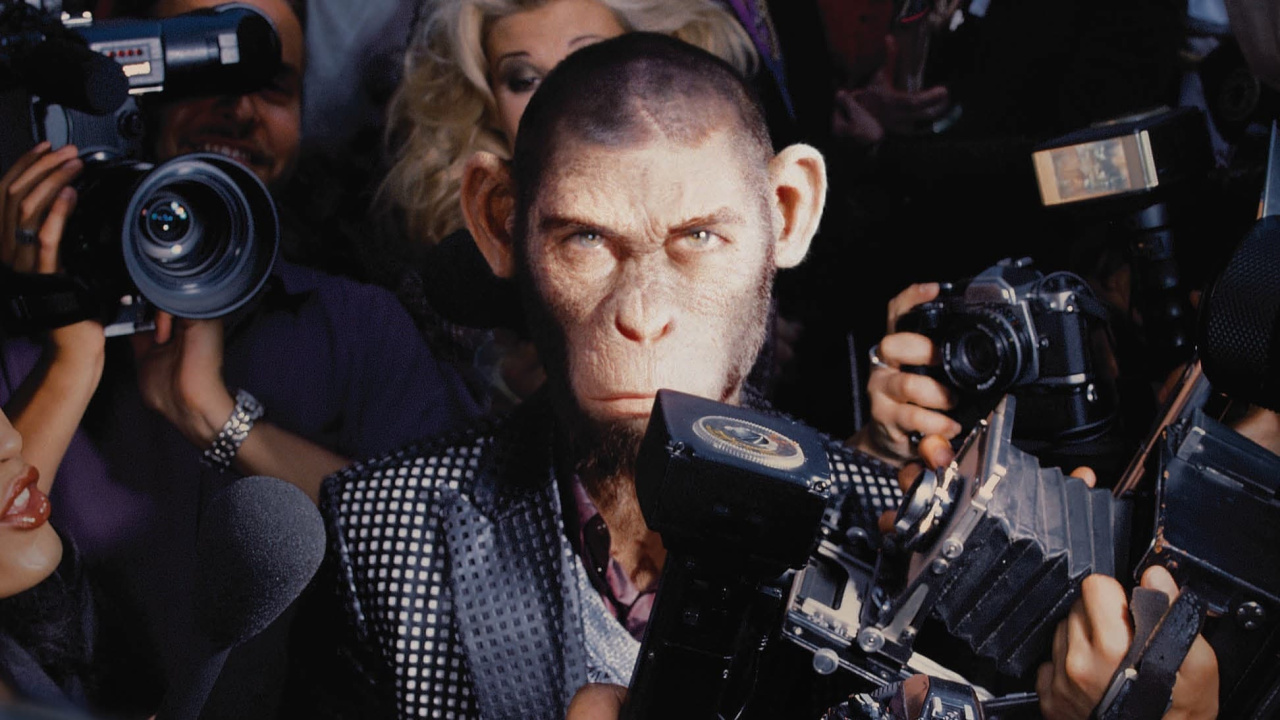‘The industry requires you to be a robot or a monkey. And I chose monkey.’
To put it simply, Robbie Williams needs no introduction, unless you’re from the United States. This might help explain the public’s response to the 2024 biopic Better Man from Australian director Michael Gracey. However, if you talk to anyone who has watched the film, they couldn’t sing its praises more, as the film took home an astonishing nine AACTA Awards in 2025. The 126-minute biopic follows Williams’ journey to one of the biggest pop artists of the late 90s and early 2000s, from his abysmal upbringing in Stoke-on-Trent, dealing with an absent father (Steve Pemberton), to his failed relationship with All Saints singer Nicole Appleton (Raechelle Bano). The film sits on the fence, in the best way, between ‘wry self-deprecation and maudlin self-pity‘ to allow Williams’ vulnerability and struggles with success to shine through.
But, to address the primate in the room, why are audiences seeing a CGI chimpanzee? When asked by NME, Gracey cited ‘something that would be, from an audience point of view, more interesting‘ as the reason for the risky choice, arguing that ‘you see more of Rob in the monkey than you would if it was an actor playing him’. In a discussion between the director and Williams, the singer described himself as always being ‘a little less evolved‘ and feeling like he was ‘prancing and preening in front of the cameras’. Despite the initial shock of seeing the monkey’s eyes open for the first time on screen, many audience members seemed to cast its uniqueness to the wayside as they found themselves more deeply invested in the story. Praise for Gracey’s, albeit dicey, decision sees audiences applaud the seamless balance between naturalism and sensationalism as the film progresses, revealing the intimate way in which, even at his lowest, Williams is willing to recognise the inherent ridiculousness of his problems.

In acknowledging the areas of the film that resonated so emotionally with those who saw it, it seems odd that the disparity between the budget and box office was one of the largest in history. With an estimated budget of $110 million, Better Man raked in roughly $22.5 million globally. Unsurprisingly, only $2 million of this was raised domestically in the US, with the remaining 90% of the revenue coming in from some of Robbie’s more popular regions, notably the UK, Europe and Australia. Seeing that his fame could never translate across the pond, the film was bogged down by its big budget and high expectations, further accentuating its failure as a box office hit.
Valid criticisms of the film’s more eccentric elements flooded social media following its wide release to over 1,000 cinemas in the United States. One X (Twitter) user explained the reason for this reception:
– MikeMacRaeMike on X
In the past, Williams’ attempts to make it big in North America have consistently fallen short of his record company’s expectations; therefore, it should not be a shock that the film performed so poorly. The cultural significance of major British musical milestones, like Robbie’s 2003 Knebworth show, which amassed 375,000 fans, making it the largest audience in British history, was missing context for an American audience. The singer also struggled to break into the US market as the Britpop movement never made it to America, despite its domination over British radio waves in the 90s and 2000s. Without understanding the magnitude of Williams’ success at the time, the film failed to appeal to consumers who ‘just found out Robbie Williams is real‘.

The film should, however, be acknowledged for where it went well. Pushing the boundaries of an increasingly saturated space of musical biopics, being up against recent competitors such as A Complete Unknown and Elvis, praise should be given to where the tropes of this genre were reimagined to maintain audiences’ attention instead of becoming just another movie about a drug-addicted musician. The choreography and visual effects throughout the entire film were stunning, even by industry standards, being nominated as such for the Academy Awards, among others. Particularly in the Rock DJ sequence, which follows boy band Take That’s meteoric rise in popularity during the early 1990s.
Regardless of the film’s financial failures, its reviews remain overwhelmingly positive. On the Graham Norton Show, Williams described the biopic genre as a way to [remind] people you’re here’, which is exactly what this film has done for him. Following its wide release in January, Williams has gone on to perform at the 2024 New Year’s Eve celebrations in Sydney, reach international headlines over the film’s debates and sell out multiple legs of his Britpop tour. Despite the negative reviews from social media users, Better Man reflects Williams’ promise never to stop entertaining you.
